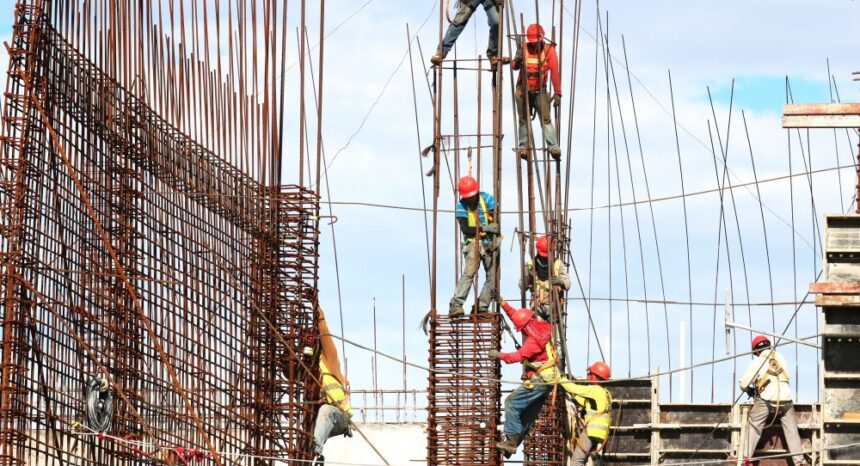Employees who work in hot conditions are not as productive and can suffer from kidney injury, dehydration and other health problems, according to a new review of 111 studies published in Lancet Planetary Health. The included studies involved 447 million workers in over 40 different occupations, including outdoor and indoor jobs.
Andreas Flouris, professor of exercise science at the University of Thessaly in Greece and lead author of the study, said in a phone call with Journalist’s Resource that this study is the first meta-analysis of its kind and provides quantitative proof of the health impacts of working in a hot environment.
He added that the review also found that in hot environments, “our bodies want to protect us,” so workers slow down and are less productive.
Flouris described the health and productivity effects of heat stress as another, less-explored aspect of climate change. As global average temperatures rise and heat waves become more frequent and last longer, “more and more people will have reductions in productivity,” he said, adding that this could have “immense economic effects.”
The review included studies from 30 countries, including the United States. All continents except Antarctica were represented. The nations included account for 77 percent of the world’s gross domestic product. Because the review relied on existing research, Africa is not well represented in the study – though South Africa, Angola and Egypt are included. Despite the region’s climate, Flouris explained that the studies on heat strain and workers in Africa are “very few and unfortunately outdated.”
Most of the studies, he added, were published within the past 10 years. The researchers were interested in a few different outcomes, including the prevalence of occupational heat strain, kidney disease and productivity loss.
Occupational heat strain is defined in the paper as “the physiological consequences of environmental heat stress,” which involves working in an environment with an air temperature between 91.4 and 101.6 degrees Fahrenheit. The physiological effects of heat strain include dehydration, fainting, kidney injury and hyperthermia.
Workers who met one of the following criteria counted as experiencing occupational heat strain: having a core body temperature above 100.4 degrees Fahrenheit, experiencing at least one symptom of occupational heat strain, as defined by international health and safety guidelines, or having heat-induced elevated cholesterol levels.
In this analysis, the researchers found that people who worked a single shift under heat stress were four times more likely to experience occupational heat strain than those in normal (thermoneutral) working conditions, which allow the body to maintain a normal temperature with little additional effort. Specifically, 35 percent of people who worked under heat stress experienced occupational heat strain.
Additionally, 30 percent of people working under heat stress reported productivity losses.
The effects of heat stress compound with the frequency of exposure – 15 percent of people who worked under heat stress for at least six hours a day, five days a week, for two or more months of the year experienced kidney disease or acute kidney injury.
Flouris explained that the effect of heat strain is likely to exacerbate global economic inequalities. Hotter regions of the world tend to be poorer, and these economies will face additional challenges as global temperatures rise. Developing economies tend to rely more on manual labor, which further contributes to the risk of occupational heat strain.
In their paper, the authors make recommendations for how policy makers, employers and health care professionals can respond to these findings. “Concerted international action is needed to mitigate the effects of occupational heat strain, particularly in light of climate change and the anticipated rise in environmental heat stress,” the authors write. “The presented evidence shows the urgent need to establish a surveillance system to monitor prevalence of occupational heat strain throughout the world. At the same time, increased efforts should be made to educate workers and employers about the health and performance effects of occupational heat strain, and appropriate screening protocols should be incorporated within health and safety legislation. Importantly, physicians and other health-care providers can play a crucial part in the primary prevention and management of occupational heat strain.”
Flouris said he is collaborating on a World Health Organization task force to develop guidelines to protect both workers’ health and their employers. He added that there are some wearable technologies available for workers to alleviate heat, but they can be “impractical and quite expensive.”
Looking for more research? Check out our round-up of scholarship on how heat waves affect the elderly. We also have tips on covering extreme weather.


Expert Commentary